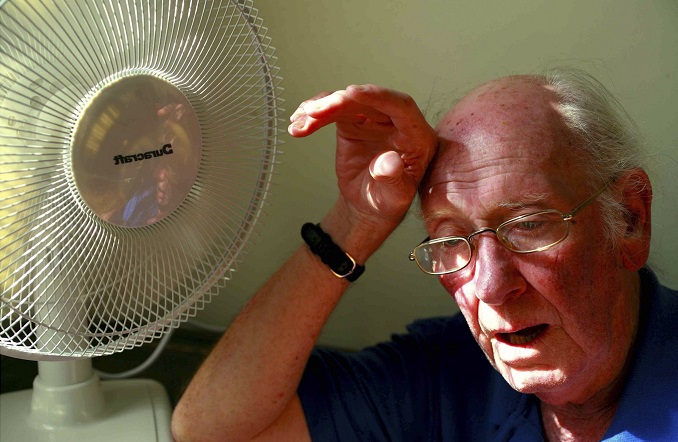As our body starts ageing, it loses the capability to regulate the heat by itself. Moreover, sweat is one of the vital components of our body that aid in controlling the temperature of our body. But with ageing, we sweat less than a younger adult, which is why the elderly are more prone to the heat illness. Moreover, with age our body starts storing fat in different parts of the body. This makes it even harder to regulate the heat and are thus prone to summer risks.
As the summer starts increasing, our internal body temperature starts rising when we are exposed directly to a hot environment or the sun. And that is when our body starts sweating for keeping the internal temperature under control. But as the elderly lose the capability to sweat like the young adults, they get prone to certain summer risks such as sunstroke.
The scorching heat during the summers leaves our body dehydrated. So, during the summers, it is essential for us to keep our body hydrated as it is the best way to keep our body protected from the heat waves. If our body gets dehydrated, it loses the capability to control its temperature. This eventually higher the chances of getting struck by heat illness. And the elderly people are prone to summer risks.
In a survey, it has been found that more than 40 percent of people who died due to heat illness are the senior citizens. Therefore, it is vital for senior citizens to protect themselves from the blazing heat of the summer.
Apart from ageing, there are certain other factors which contribute to the various heat illnesses such as:
- Various chronic illnesses such as heart or kidney diseases as well as blood circulation conditions.
- Dehydration
- Overdressing
- Prescribed medicines that close the sweat glands
- Salt-restricted diets
- Minimal access to air conditioning or air flow
- Living in specific regions where the temperature can go beyond normal
How to detect heat-related issues in adults?
The earliest signs of summer risks related health issues in elderly adults that can lead to heat stroke are tiredness, weakness, sudden excessive sweating, muscle cramp, dizziness, as well as headaches. But as the conditions start getting severe, further symptoms can start showing such as vomiting, fainting, nausea and others. So, if you detect any of the above symptoms, you should take them to medical supervision as immediately as possible as heat stroke can set in within 10–15 minutes after the signs start showing up.
Before any medical help arrives, what you can do to help them is by assisting the elderly adults in lying down in a cold environment and put a fan above them directly that will improve their body to cool down rapidly. Or, you can take them to an air-conditioned room and start providing cooling fluids. A cold bath can also help them to lower down their body temperature rapidly.
TriBeCa Care provides complete care to elderly. For more information, call us at: 03340277777 / 8017770323 or email us at: enquiry@newwpsite.tribecacare.com. Visit our page at: www.tribecacare.com.

